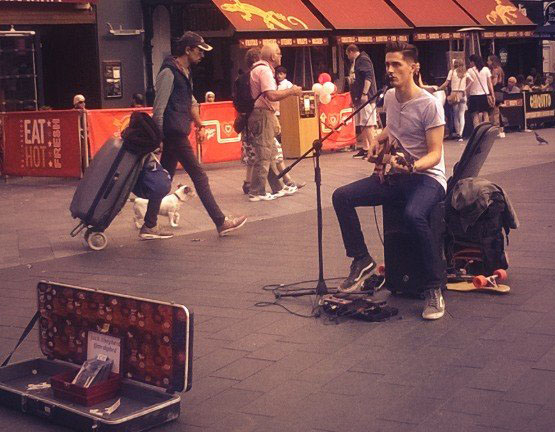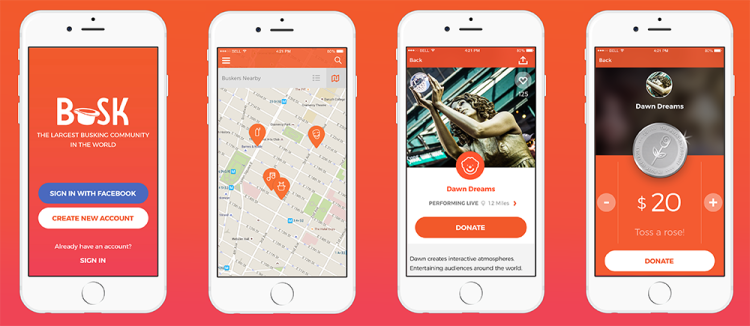Hey all,
Just a quickie – we were just interviewed for a short piece on the shift to a cashless society and how it affects buskers on ABC News. Woohoo! 🙂
(PARTIAL) TRANSCRIPT
NICK GRIMM: There’s nothing quite like the feeling of having pockets bulging with cash, but research shows that Australian shoppers are increasingly passing up on that cheap thrill for the convenience of a plastic card or smartphone app. Recent studies show cash transactions in Australia are on the decline, as people turn to electronic payment systems for transactions as small as $5. It might mean there’s no more digging around for loose change. But where does that leave those who rely on informal economies such as busking, tipping and even begging?
Eleni Psaltis reports.
(Sound of Whanjulla Imbala playing didgeridu)
ELENI PSALTIS: Whanjulla Imbala is a Bwgcolman man from Palm Island who has been busking on the streets for 15 years. He says more people are carrying cards instead of cash and he’s worried about what this may mean for street performers.
WHANJULLA IMBALA: That would affect us big-time. People come up all the time: “We want to give you something, but we don’t have cash. We’ll be back.” So you know, having that cashless society is sort of a waste of people’s time as well, because they come, they want to give something, so they have to go out of their way and then come back to put the money on the table for us. Yeah.
ELENI PSALTIS: The self-regulatory body for the payments industry says cash transactions are on the decline and that last financial year there were fewer ATM withdrawals. Dr Leila Fourie is the CEO of the Australian Payments Clearing Association:
DR LEILA FOURIE: We saw a decline of 6.6 per cent year on year and this is increased from the prior year, where we saw decline of 4.9 per cent. When you contrast this against the growth in debit card and credit card transactions, which is now growing at 12 per cent, we see that people are spending a lot more on their credit cards and using cash a lot less.
ELENI PSALTIS: The Reserve Bank says the overall demand for cash in Australia remains strong, but its most recent survey on transactions showed that, in 2007, cash accounted for 69 per cent of consumer payments. Six years after that, in 2013, it only accounted for 47 per cent.
ELENI PSALTIS: But not all buskers are worried about this transition to a cashless economy. Jack Shepherd is a singer and a guitarist who has been busking since 2011:

JACK SHEPHERD: If we move to a completely cashless society, I don’t think street performance will die out. People still like spontaneous entertainment. I mean, you know, the crowds don’t stop.
ELENI PSALTIS: So how have you adapted?
JACK SHEPHERD: I’ve got something from busk.co or The Busking Project and that is sort of a website that takes the concept of cashless society and tipping buskers and puts it into an app and a website.
ELENI PSALTIS: The Busking Project was launched in December 2015, allowing people to instantly transfer money to a street performer. Its co-founder, Nick Broad, says the process is simple:
NICK BROAD: Open the app, you immediately see a dot on the map near you, which represents that street performer. You click on the dot, you then click “donate”, you choose how much you want to give and then you just have to click the “donate” button. You don’t have to keep entering your bank details every time. The nice thing about that is: you can also see where every other street performer in the city is performing right now. So it’s the world’s first live busking map.

ELENI PSALTIS: But Nick Broad says the uptake has been slow. Less than 3,500 buskers and 1,400 contributors worldwide are using the app or website.
NICK BROAD: I think people just aren’t used to using their phone to tip strangers. I think that’s the biggest issue. But if we can show people that tipping a street performer or anyone else on the street is just as safe as accessing your bank online, I think people will get into it more. There’s just a lot of distrust over technology at the moment.